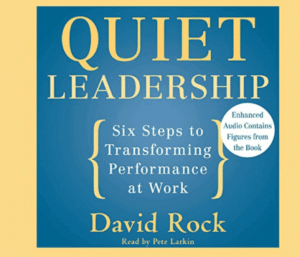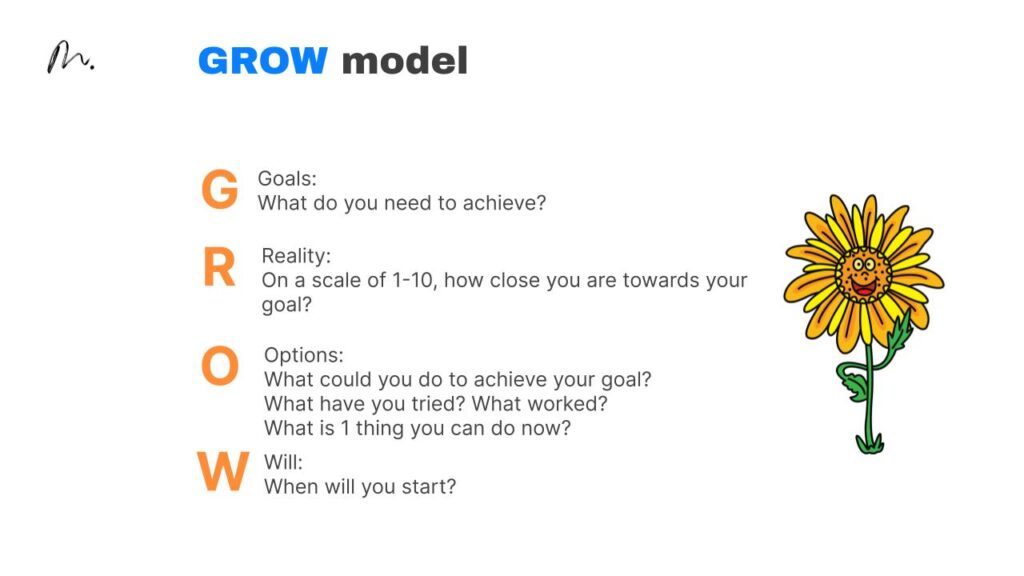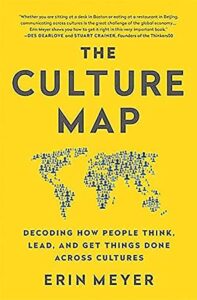
Becoming a leader is an exciting yet challenging journey. As you step into a managerial role, it’s crucial to equip yourself with the right skills and mindset to effectively navigate the responsibilities and expectations that come with leadership. In this article, we’ll explore key insights from “Change Your Questions, Change Your Life” by Marilee Adams and “Scout Mindset” by Julia Galef, along with incorporating coaching principles using the GROW model, to help you master the transition to leadership.
Embrace the Power of Coaching in Leadership:
Contrary to popular belief, leadership is not solely reserved for having all the answers. “Quiet Leadership” by David Rock celebrates the strengths of coaching in leadership.
This book is a practical guide about how to apply coaching in leading the teams.
David offers a simple Six Steps questioning framework.
Additionally, you will find a technique to shift the mindset of your employees and immediately change their thinking.
This book includes real-life examples of dialogues, how leader address concerns from their employees.
It teaches to get people to insights for themselves, without telling them what to do.
You will also find techniques to give feedbacks, powerful questioning for decision making and help your team to solve dilemmas faster.

Ask Powerful Questions by leveraging the GROW Model for Coaching:
Apply the principles of the GROW model to guide your coaching conversations with team members. By focusing on Goal, Reality, Options, and Way Forward, you can empower individuals to tap into their potential and achieve meaningful growth.

Foster Psychological Safety: S.A.F.E.T.Y™ assessment developed by BrainLeadership.com.
This assessment is good for leaders to run across their team, if you want to know how to get them more motivated and improve their performance.
The results will give you insights for your leadership style.
The S.A.F.E.T.Y.™ Model identifies six crucial domains that impact the brain: Security, Autonomy, Fairness, Esteem, Trust, and You. By understanding the needs, rewards, motivations, biases, and stress triggers associated with each domain, we gain valuable insights into ourselves and others. This understanding can greatly enhance interactions, teamwork, and overall productivity.
https://brainleadership.com/solution/safety-assessment/
Embrace diversity: leading a multicultural team.
“The Culture Map” by Erin Meyer, an esteemed professor at INSEAD, offers invaluable insights on effectively navigating the complexities of cultural differences.
Drawing from extensive research and real-life experiences, Erin Meyer provides a practical framework for understanding and bridging cultural gaps in global business environments.
Through her book, Erin Meyer highlights the importance of cultural intelligence and offers actionable strategies for building successful relationships and collaborations across cultures.
“The Culture Map” emphasizes the significance of cultural context, communication styles, and behavioral norms in achieving cross-cultural understanding and cooperation.
With its rich and comprehensive exploration of cultural diversity, “The Culture Map” equips individuals and organizations with the tools to thrive in a globalized world by embracing and leveraging cultural differences.


Practice the Growth mindset
In “Scout Mindset,” Julia Galef provides a compelling exploration of the human mind’s tendency to fall into judgment and biases, offering practical techniques to overcome these limitations.
With deep insights and engaging examples, Galef encourages readers to adopt a scout mindset—a curious, open-minded approach that seeks truth and accuracy over defending preconceived beliefs.
The book sheds light on the detrimental effects of a fixed mindset and illustrates the power of embracing uncertainty, embracing new information, and updating our beliefs accordingly.
By emphasizing the importance of intellectual honesty and challenging our own assumptions, Galef empowers individuals to navigate a complex world with clearer thinking and better decision-making.
“Scout Mindset” serves as a valuable guide to develop the skills needed to identify and overcome our cognitive biases, ultimately enabling us to make more rational, informed, and unbiased judgments.
Lead with curiosity and courage.
“Change Your Questions, Change Your Life” by Marilee Adams explores the transformative power of asking empowering questions to overcome challenges and achieve personal and professional growth.
Adams reveals that the quality of our questions directly impacts our thoughts, emotions, and actions, ultimately shaping our outcomes and experiences.
The book introduces the “Question Thinking” framework, which teaches readers how to shift from a judgmental, problem-focused mindset to a solution-oriented, possibility-driven mindset through intentional questioning.
By learning to ask open-ended, learner-focused questions, readers can uncover new insights, challenge limiting beliefs, and find innovative solutions to everyday problems.
“Change Your Questions, Change Your Life” empowers individuals to become more self-aware, improve communication, build stronger relationships, and create positive change by harnessing the remarkable power of purposeful questioning.

Reflection Questions:
- What leadership style resonates with you the most, and how can you incorporate elements of that style into your own approach?
- What specific goals do you have for your leadership journey, and what steps can you take to achieve them?
- How do you currently create psychological safety within your team, and what strategies can you implement to further enhance it?
- Reflecting on the GROW model, what aspects of your team’s growth and development would benefit from a coaching approach?
- How can you leverage the insights from “Change Your Questions, Change Your Life” and “Scout Mindset” to enhance your leadership impact?
Conclusion:
Transitioning to a leadership role requires a combination of skills, mindset, and ongoing learning. By embracing a growth mindset, asking powerful questions, cultivating a scout mindset, leveraging coaching principles through the GROW model, and fostering psychological safety, you can effectively navigate the challenges and maximize your impact as a new manager. Take time to reflect on your leadership style, set meaningful goals, and continuously evolve as a leader. Remember, leadership is a journey of growth and development.